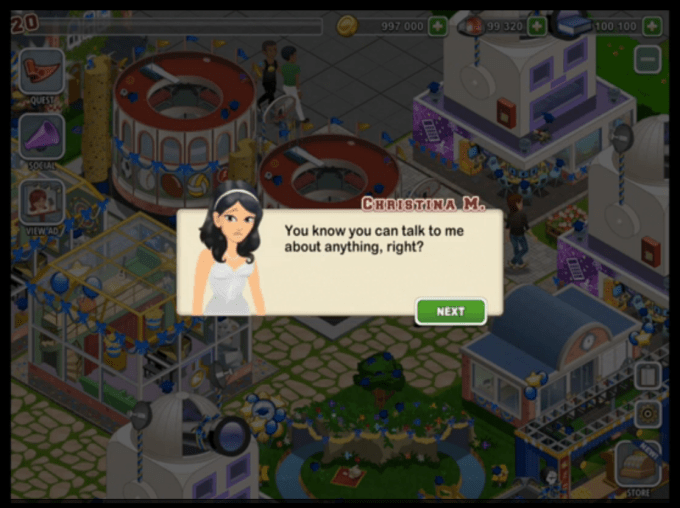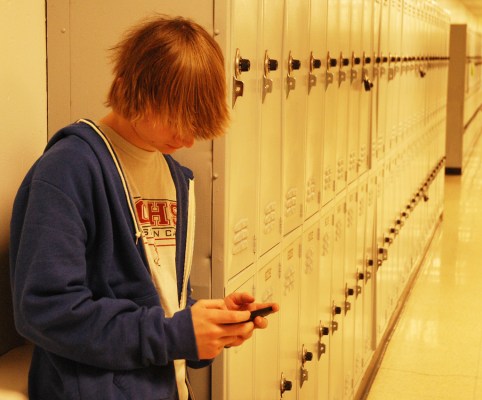According to recent studies, 80 percent of teenage girls and 20 percent of boys in the U.S. have struggled with negative body image. So Pixelberry Studios, which focuses on creating awareness about social issues through mobile games, and the National Eating Disorders Association (NEDA) teamed up to make a new version of Pixelberry’s popular mobile game “High School Story.” Launching today on iOS and Android, the game educates teens about developing a healthy attitude toward their bodies and avoiding eating disorders.
Previous versions of “High School Story,” including one that addressed cyber-bullying, have already seen over 10 million downloads. Based in Mountain View, Calif., Pixelberry was founded in 2012 by Oliver Miao, Keith Emnett, and Winston She who all previously worked at Electronic Arts.
Miao tells TechCrunch that Pixelberry collaborated with the NEDA in four ways: making sure that its story lines about body image and eating disorders are realistic and responsible; creating an in-game FAQ with more information about those issues; setting up a help line with staff from the NEDA that players can access through the game; and including links in “High School Story” to Proud2BMe, a teen-oriented site set up by NEDA.
The main character in the latest version of “High School Story” is a girl called Mia who starts crash dieting and over-exercising after hearing a hurtful comment about her body.
“By playing our body image quests, players gain a better understanding of where body image pressures come from and learn ways of addressing them positively,” says Miao. “Our quests also encourage teens to talk more openly about body image issues and eating disorders with friends and family — which is an important first step in getting help.
“More generally, we tried to design our game to let players feel good about who they are, even if they are going through tough times in school,” he adds. “Our main story line is about a group of misfits who don’t always feel like they fit in at their old schools and come together to create a better one.”
The original “High School Story” let players create their “dream high school,” and Pixelberry has already addressed issues like cyberbullying in previous versions. The startup says that the campaign reached over 2.5 million teens and raised $250,000 for the Cybersmile Foundation, an anti-bullying charity, with 100 players each week also contacting professional counselors in-game.

As with the anti-bullying version of “High School Story,” players in the healthy body image version can also read FAQs about how to maintain a healthy body image and contact NEDA for support.
One of the reasons Pixelberry began working with charities was because its team “had a very alarming interaction with a player who used our in-game support system to tell us out of the blue that they were planning to kill themselves,” Miao says.
“We were shocked, scared, and didn’t know what to do. We ended up calling the suicide prevention hotline to get advice. After exchanging nerve-racking messages with the player for a week, she finally told us that she was getting help. She also said that it was because of our game that she was still here. That incident showed us how powerful games can be in influencing players. And it also showed us that we needed to work with experts whenever we addressed sensitive topics.”
Pixelberry is a bootstrapped startup and monetizes by offering freemium in-app purchases, including the option to unlock extra story lines or speed up some in-game actions. The studio plans to continue tackling other teen issues with future releases. One feature that is in the works is called “Your Voice.”
“It is designed to have our players first share their voice on fun topics, like music and memes, and then later share their voice on current events and other more serious topics,” explains Miao. “Our hope is to encourage teens to develop their own voices on important issues.”
Image by Flickr user KOMUNews used under a Creative Commons 2.0 license
